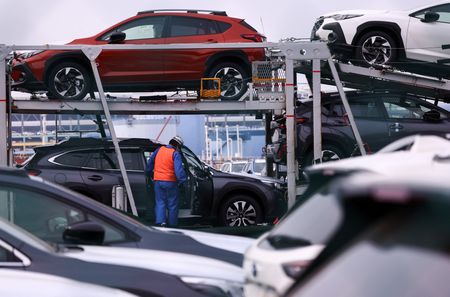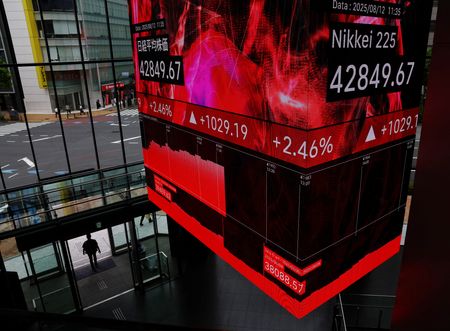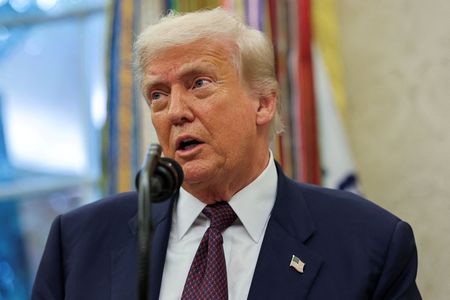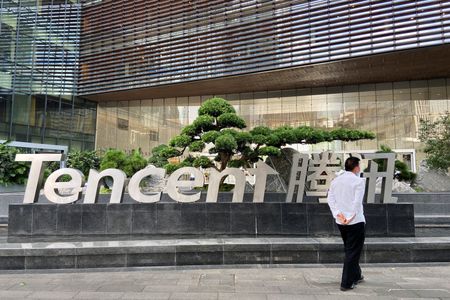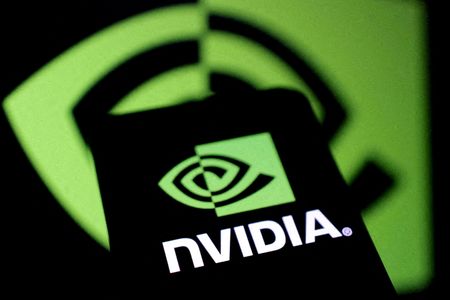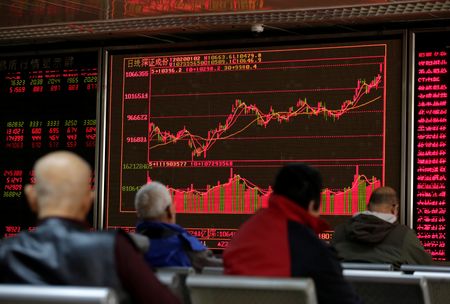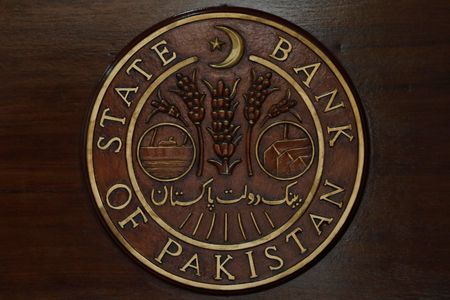By Makiko Yamazaki
TOKYO (Reuters) -Japanese manufacturers grew more confident about business conditions in August after a trade agreement between Tokyo and Washington, but remained cautious about the outlook due to potential U.S. tariff impacts, a Reuters Tankan poll showed.
The monthly poll, which tracks the Bank of Japan’s quarterly tankan business survey, showed the manufacturers’ sentiment index rising to plus 9 in August from plus 7 in July, marking a second straight month of improvement.
But the index is projected to decline to plus 4 over the next three months, signalling that manufacturers remain guarded about how the U.S. tariffs would impact their businesses.
The poll, conducted between July 30 and August 8, surveyed 497 major non-financial companies, with 241 responding on condition of anonymity.
Last month, Japan secured a trade deal with the U.S. that lowers tariffs on cars and other goods to 15% in exchange for a U.S.-bound $550 billion Japanese investment package that will come in the form of equity, loans and guarantees.
Among manufacturers, the sentiment index for the transport machinery sector, which includes Japan’s vital auto industry, surged to plus 25 in August from plus 9 in July. However, it is projected to slip back to plus 9 in November.
“The business outlook remains uncertain as the U.S. tariff policies are forcing the entire automobile industry to overhaul its production plans,” an auto industry manager wrote in the survey.
Another manager from the sector cited slowing sales of Japanese cars in China, in addition to the U.S. tariffs, as a source of concern.
The food industry saw the sharpest decline among all sectors, with its sentiment index falling to minus 25 from zero, with some managers pointing to persistent surges in ingredient and material costs.
For non-manufacturers, the business sentiment index fell to plus 24 in August from plus 30 in July, its first decline in five months. Companies expect a slight rebound to plus 25 in the next three months.
Real estate and construction firms, as well as retail firms, reported declines in their respective indexes, though they remained in positive territory, signalling that optimists outnumber pessimists.
Some managers at retail firms cited a drop in store visitors, while a services firm manager said heatwaves were affecting business.
(Reporting by Makiko Yamazaki; Editing by Himani Sarkar)

